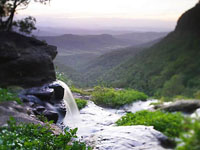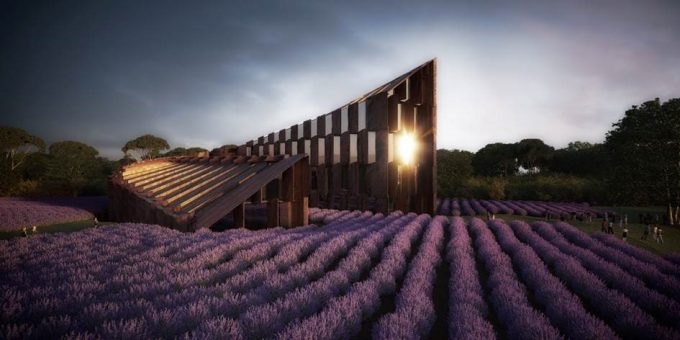
How the tourism world has changed in 14 years
It has been 14 happy and exciting years for my partner June and I running a B&B in the Sunshine Coast Hinterland.
It is now time for a change. As with two close friends in the industry here who have recently sold their accommodation businesses, “the time has come” the walrus said. All of us came into the tourism business from big business, bringing expertise variously from oil, retail and the media. There was much to learn and much that we could bring to the industry from our business and travel experiences around the world.
This article looks at the changes, good and bad. The final article will seek to plot a road ahead.
Productivity. Politicians, economists and business consultants globally rave on about the importance of greater productivity. That makes sense in this age of fast changing technology but this must be taken in context.
There has been a dramatic change in the way our business works – 14 years ago about 25% of the Queensland B&Bs did not have computers – we had to send faxes of QBBA meetings to these modern dinosaurs. Then we could not operate away from our accommodation and office; now a mate was able to keep tabs on his business from the banks of the Mekong. In those dark days one of his KPIs was how many brochures he mailed out each day; today he has to be able to use all the digital tools available, pay and receive monies electronically, diarise vacancies on channel managers who send realtime information by SMS and email, the wotifs, quickbeds, booking.com, stayz (who provide business albeit at a substantial discount to the rack rate); post stories on Facebook, Twitter and blogs (a second mate whose computer knowledge used to be rudimentary, then created a highly amusing blog).
And if as often happens guests leave mobile chargers, clothes and valuables behind we can send SMS and verbal messages that are mostly picked up even before they leave the Hinterland.
That’s good.
Now to the downside of productivity.
Let’s start with GST that came into being in the last 14 years. It takes me 12 hours a year to fill in my BAS including diagnosing all my invoices – pretty much a total waste of time. When introduced, the ATO refused to allow an average percentage for food and beverage invoices to be used for GST (I had estimated between 29-33% on our supermarket bills). The supermarket chains deigned not to reprogram their accounts software to allow for a monthly GST total. Plain stupid. My accountant told me that I have the most complicated GST of all his clients.
Yes the technology has moved forward but haphazardly from the production angle. Voice recognition is still in its infancy. Telstra’s Leave a message is a joke, as exampled by one left for my wife to say there were no croissants in our IGA. The message she received ran like this “Jeremy we can’t find cross overs”. The same holds true in the car industry where my BMW has a separate brochure just to explain how it all works – or not.
Automatic software updates across our computer/tablet/smart phone cause all sorts of problems, as witnessed last week on my gmail, when suddenly the send button disappeared. Half an hour of my time plus 10 mins of my IT techo’s eventually solved the problem. Constantly upgrading soft and hardware is expensive and time consuming. Although costs of new websites have plummeted – it cost us $5000 for our first website 14 years ago – there is still much that the IT industry can do to improve business productivity.
Yes the social media has helped immensely in the marketing area. The TripAdvisors of this world arrived with a mixed blessing when everyone could go live without understanding the contingent liability attached to this, and an un-American aversion for taking legal responsibility as the medium provider. The need to be accredited has diminished and AAA Tourism’s imprimatur has suffered due to its continuing emphasis on infrastructure rather than service as well. However one of the great advantages of the accreditation system, as with those of awards, is that it places an onus on the accommodation industry to measure, maintain, modernise and refurbish.
On the employment side, we took a decision right at the start that we would not grow the business to five suites as that would entail using outside staff. With a 24×7 business, the thought of having to adhere to stringent government regulations that now include the dreaded holiday and weekend payloading, mitigates against rebuilding the tourism industry from its dive during this last 14 years from 120,000 to 90,000 in Queensland.
Whilst I admire the present state government’s efforts and considerable support with marketing, with working closely with the industry, with promoting infrastructure assets such as park trails and access, much of this is dwarfed by the inability to provide the transportation infrastructure critical to build this up. In the many years I have been reporting on the Australian infrastructure scene (initially as a publisher), I just do not understand how we have got to a stage where nationally we need $600 billion to upgrade it. It can still take three hours to traverse 85km from our accommodation to the major Brisbane market on a holiday weekend and sometimes on a workday.
However one of the greatest benefits I have seen in the 14 years here is that despite some horrendous politics, professional incompetence and much ego preening and bashing, we have an RTO that supports our small Hinterland Sunshine Coast with a professional permanent staffer and a structure that allows for us to work closely with them and with our state tourism body. It was not ever thus; tourism bureaucrats often appeared suspicious of newcomers to the tourism industry and vice versa. My own experience is that we have some highly professional operators in both camps and some that just should not be there – a microcosm of the political arena today.
What is a truism is that everything changes and nothing will change. The rivers of gold from Fairfax’s classifieds in the newspapers have dried up; the enormous telephone directories producing $52 million from the Sydney region annually alone in 1983 are long gone. Thank God I am out of all that business.
My news every morning is on my tablet, we and other accommodation providers can download the latest news from São Paulo for their breakfast tray, guests questions can be Googled here and in the local information centre.
There still will be weddings, events, time out, travel experiences and just plain overnight havens for sleep but how will the accommodation industry go forward?

AccomNews is not affiliated with any government agency, body or political party. We are an independently owned, family-operated magazine.







